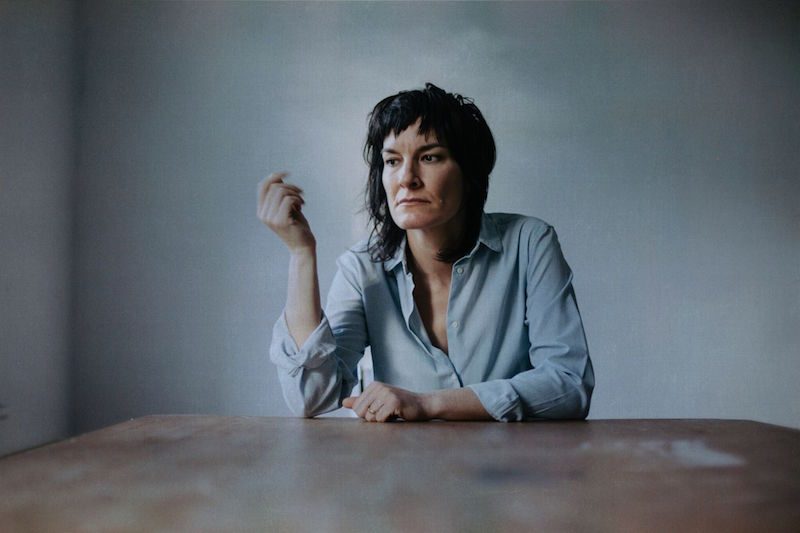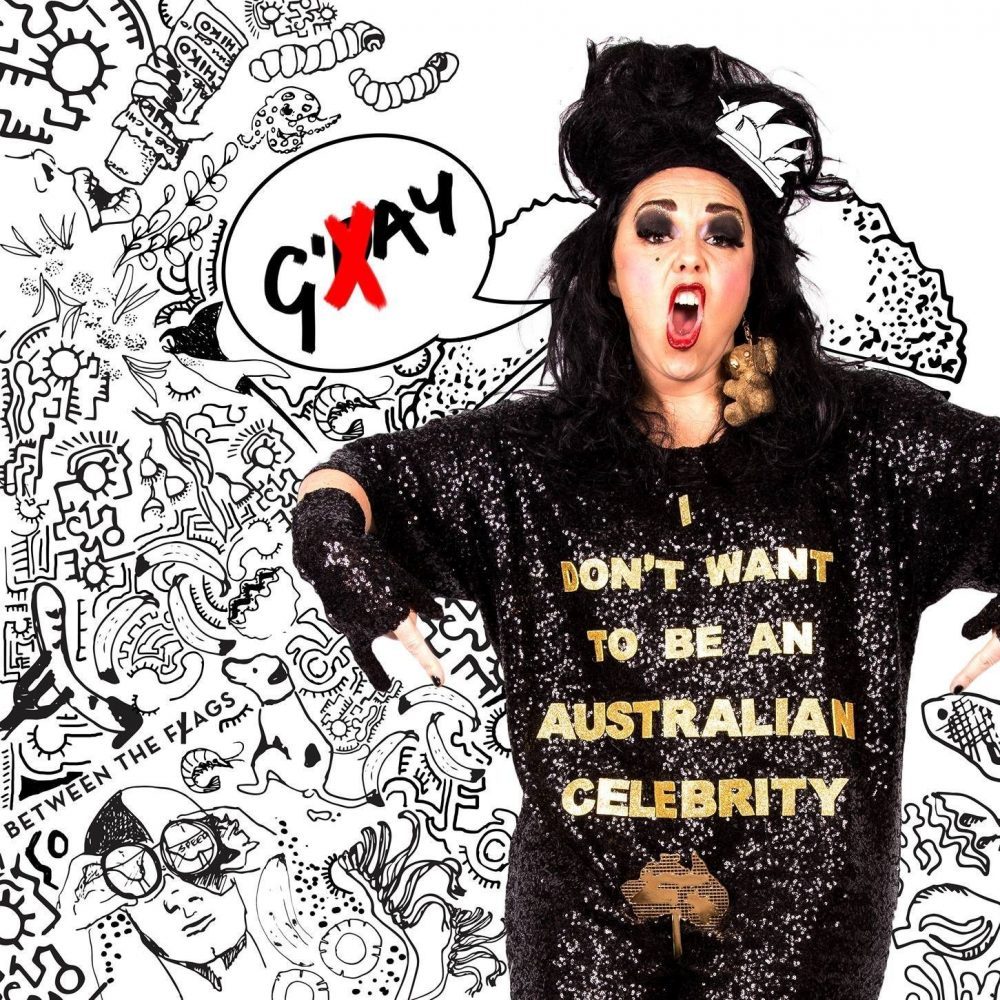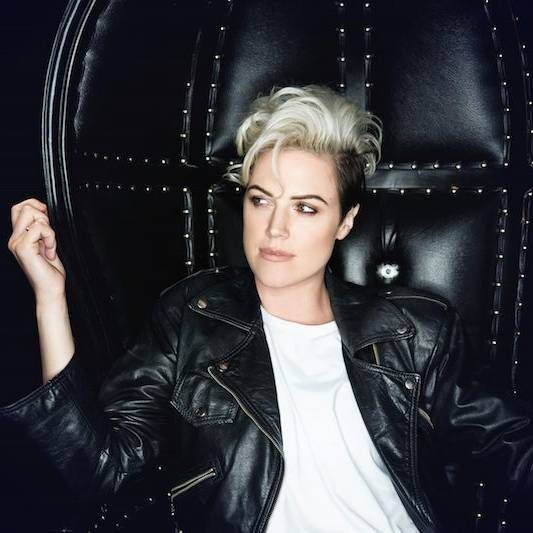
We talk with the alt-rock legend Jen Cloher about her new album, dealing with wife Courtney Barnett’s success, and marriage equality!
While Courtney Barnett has taken over the world stage in the past few years with her loud, angsty, personal-is-political anthems, her wife Jen Cloher has been less vocal.
That’s all about to change, now that Cloher has released her fourth, self-titled album, Jen Cloher.
It’s a letter in triplicate addressed to the themes of Music, Australia and Love, and it’s the most honest album she’s ever written.
Here, she talks with us about dealing with her partner’s success, prejudices in the music industry, and why Australia’s marriage equality situation is so monumentally fucked up.
Your new single, “Forgot Myself,” of your upcoming self-titled album, is one of the most brutally honest songs/memoirs that I’ve ever heard, and seems to me to be a kind of musical version of what you said in your fabulous speech at the One of One Woman In Music brunch about the stages you went through in dealing with your partner Courtney Barnett’s success.
Can you explain to our readers what occurred to inspire this song, and then why it was important for you to work through it in music?
Courtney’s career took off about two years into our relationship. We’ve been together for 6 years now. It happened quickly once she had released her first EP (even though she’d spent the previous 10 years writing and playing the pub circuit) and before we could really get a grasp on what was about to happen she was off touring England and the U.S often for months at a time.
Going along with her wasn’t really an option financially, I had to stay at home and keep earning money and looking after our cat Bubbles. Pets aren’t just for Christmas right?
So it meant a LOT of time apart. Over a three-year period, we were lucky to spend half of it together. I would often feel lonely and question whether it was healthy to stay in what had essentially become a long-distance relationship. Forgot Myself document my feelings over this period, I always write about what’s going on for me so it felt natural that some of the themes of the album would lean towards my relationship.
Tell us about the concept for the “Forgot Myself” music video. [Am I on the right track by thinking that it’s visually iterating that self-care requires one part of you to be conscious of the rest of you, so you can look after yourself? And when that self-consciousness and self-actualisation disappears, you’re a bit screwed?]
Wow, you’ve actually articulated it for me! It would have been easy to get swallowed up in the whirlwind of Courtney’s success, one minute she was on Ellen, the next on Jimmy Fallon! It was nuts. America really connected with her music. But I knew the most important thing for my mental health and creative goals was to stay focused on my own work. I had to slow down and take care of my own needs.
In “Forget Myself,” but also in the Women in Music speech, and in songs like you and Barnett’s “Numbers” duet, you talk about age, and your fears and ideas about aging, and also about having a sizeable age gap between you and your partner. Despite living in an ageist society generally, what would you say are the advantages to being in the music industry today at your age and with your experience?
I think it’s a great time to be a CIS woman, femme or gender – non conforming artist in music no matter what your age. People like Anohni, PJ Harvey, Bjork, Patti Smith continue to inspire the next wave of artists coming up. I don’t think younger people are as ageist these days, they seem a lot more relaxed around gender, sexuality and age which is a great sign.
How is navigating an age gap in a female same-sex relationship? Do you think it is different to navigate an age gap in a heterosexual relationship?
I’ve only ever been in same-sex relationships so I can’t speak for the heterosexual experience. I think there are obvious challenges around age difference but most of them are just old ways of thinking that I’ve had to challenge and breakthrough.
The second song on your new album, Analysis Paralysis, deals explicitly with the ridiculousness that is the current state of the marriage equality debate in Australia. You write, “I’m paralysed/ In paradise/ While the Hansonites/ Take a plebiscite/ To decide/ If I can have a wife/ I pay my fines / Taxes on time/ But the feral right/ Get to decide/ If I can have a wife.”
Give us the lowdown on your thoughts on marriage equality, and why music and the arts can be such powerful forms of protest.
I think the first thing to acknowledge is how long the GLBTQI community have been lobbying for marriage equality in Australia. I want to pay my respects to those people because it must be heartbreaking after so much work to change public opinion to now watch politics move so slowly. Marriage equality is about civil rights. Period. Australian law allows both religious and civil marriages. When it comes to civil marriages, the law allows for marriage between people of different faiths or no faith. Divorce and de facto relationships are allowed even though some religions condemn them. It is a double-standard to refuse to allow same-sex couples to legally marry just because some religions oppose same-sex relationships.
So I guess I’m saying if you expect me to live by the law and contribute to society then afford me the same rights. We all know marriage equality is being used by two outmoded political parties that the public no longer trusts to win votes. So let’s use everything to protest – art, conversation, community.
Your music also deals with the hardness that is a long-distance relationship. You put it beautifully in “Sensory Memory,” when you write, “So you get the edges/ Of the things you never say/ Distance has a funny way/ Of slowly making you someone/ That I don’t know”.
How have you dealt with being in a long-distance relationship, and what makes the hard stuff worth it?
I’m not sure how well I dealt with it! I reached out to other friends who had gone through a similar experience. Some of them made it through, some of them didn’t. I guess it’s just taking it a day at a time and continuing to focus back on your own life rather than pining after the person who is so far away. Having great friends has been a huge support. I am surrounded by beautiful, wise souls. I’m very lucky.
Who are the Australian female music artists you are listening to at the moment?
I am loving Aldous Harding (NZ) haha! We’ll probably claim her as Australian now that she’s having international success. I’m also a huge fan of Tiny Ruins (another Kiwi). Sampa the Great, Ngaiire, Jade Imagine, Cable Ties, Hachiku. I’m also excited for the new Laura Jean album which I think is out next year.
And finally, in one of your new songs, “Strong Woman,” you write, “This world it wasn’t made for women/ You know even before you’re bleeding/ I’m sorry, can’t you hear me speaking?/ How is it now, now that I’m screaming?” What should women in Australia be screaming about right now?
I think we saw a large community of women screaming all around the world in January this year for the Women’s March (estimated 5 million around the world). We marched in Melbourne with a couple of thousand people acknowledging women’s rights, reproductive rights, healthcare reform, LGBTQ rights, racial equality, gender equality and environmental protection. The song pays homage to the incredible strength of my matriarchal line. Without the hard and often unpaid work of women, the world would fall apart.


